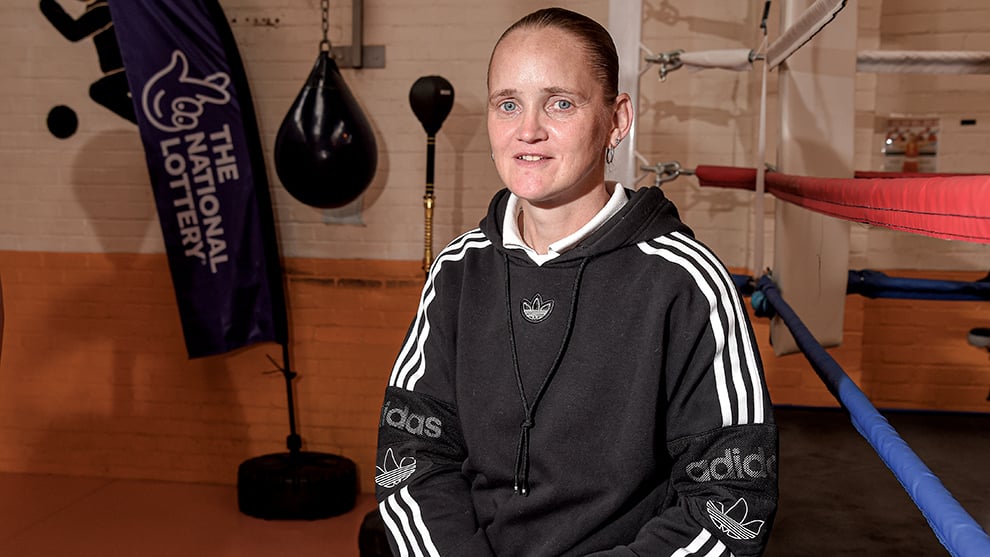By Steve Bunce
BACK when there was not one woman from British amateur boxing good enough to be sent to a World or European championship, a tiny group of renegades gathered one weekend.
It was May 2003 and the inaugural Female National Boxing Championships took place at the Metropolitan Police College, in Hendon, north London. It was like a secret event and so far it has escaped all records. You had to be there.
A total of 19 dreamers arrived that weekend and nobody had a clue what to expect. They lined up to weigh-in and looked at each other nervously. Some had never boxed, others had fought a couple of times. One or two had fought perhaps six or seven times; they were a genuine mix of unknowns. They were inheriting absolutely nothing.
The line-up included an armed response policewoman from Leicester called Tiffany Lynch. There was a woman who gave out change at an amusement arcade on Paignton pier called Kristine Shergold. There was a mum called Tamasin Mallia who had fought and lost three times before arriving in Hendon. They were all there dreaming of something.
Shergold was the veteran in Hendon. She had fought nine times, and she was one of the 20 women who had been invited to Crystal Palace, where GB boxing was based, in 2001 to take part in a training session. Now, this session has become a thing of glorious myth in boxing. Some people doubt it existed, but it did, Shergold was there, and she has testimony. She told me about it at Hendon on the Saturday afternoon.
The day was officially an “assessment” session to see if any of the invited women were good enough to compete at the first edition of the Women’s World Amateur Championship in America later that year. It was a brutal cattle market, a raw day with no camouflage for the exposed and inexperienced boxers. It was certainly handled incorrectly. The woman performed in front of an unimpressed pack of men, led by Olympic coach, Ian Irwin. There was really no need for the public workout; it was clear the women in 2001 were not ready.
“We were asked to train to see if any of us were good enough to go to the first Women’s World Championships in America, but the feedback wasn’t very good, and it was obvious that nobody there thought that any of us could box,” Shergold told me. Ouch.
Shergold lost to Rhiannon Dixon on points in her 15th pro fight in 2022; she was 41 on the night in Leeds and has not fought since.
In 2002, when the women’s Worlds were in Turkey, there was no “assessment” day. As a direct comparison, England, Scotland and Wales decided to not send any boxers to the first edition of the men’s World Championships in Havana in 1974. They were not good enough, was the savage assessment. It was probably right.
Back in the Hendon ring, there was some controversy after Friday’s semi-finals. Some of the women complained that the fights had been stopped too early.
“This is a full contact sport and I expect to get hit and hurt in there and when it was stopped, I couldn’t believe it,” said Rachael Prendergast. “I was not hurt, not even a bit.”
Prendergast was having her first fight at 30 and was beaten in one round by Nichola Owens. It was all new, especially for most referees. Owens beat Heather Mackie in the featherweight final.
In the very first bout, Jenny Dowell had beaten Mallia. I took down amazing details back then – you had to get everything in your pad because there were far fewer ways to check on facts and figures and the ages of the boxers. Dowell was a hairdresser and would lose the bantamweight final on countback to Tina O’Dell, who boxed for Frank O’Sullivan’s club, Birmingham City Police. O’Dell was part of England Boxing for a time, one of the pathway coaches. She still runs a gym in Birmingham now.
It was another tough loss for Mallia and that meant she still had one more hard task to finish. She told me about it: “I have to call my five-year-old son, Tommy, and tell him that I’ve lost again. I would never let him see me fight and it is hard enough making the call.” Mallia went on and became a boxing judge and trained amateur fighters.
I’m beginning to wonder if there is a simple documentary to be made about the nineteen dreamers who showed up in Hendon chasing something. We love pioneers in any sport and those women were real pioneers. It might just work, and they had backstories. This is also a couple of years before Nicola Adams and Amanda Coulson were sent to events in Europe. This event at Hendon is like a lost piece of archive; the BBC filmed some of it, so it is out there somewhere.
Lynch, the armed policewoman, only started boxing when the police car she was travelling in hit a tree during an armed and high-speed chase. I’m not inventing this, by the way. She was told that she would be out of action for 18 months with a damaged leg; she turned to boxing and was in the ring inside a year. She lost in the welterweight final but was planning on going to the World Police and Fire Officer Games in Barcelona that summer. She remains a powerful player in the police force.
From March 4-11, four women from the GB Boxing machine will travel to Italy for the second Olympic qualifier. Two women, Charley Davison and Rosie Eccles have already qualified for Paris. Meanwhile, somewhere in Britain, a group of renegade women and forgotten fighters will be keeping an eye on their progress. They made that passage possible, and I wonder where they all are now?
